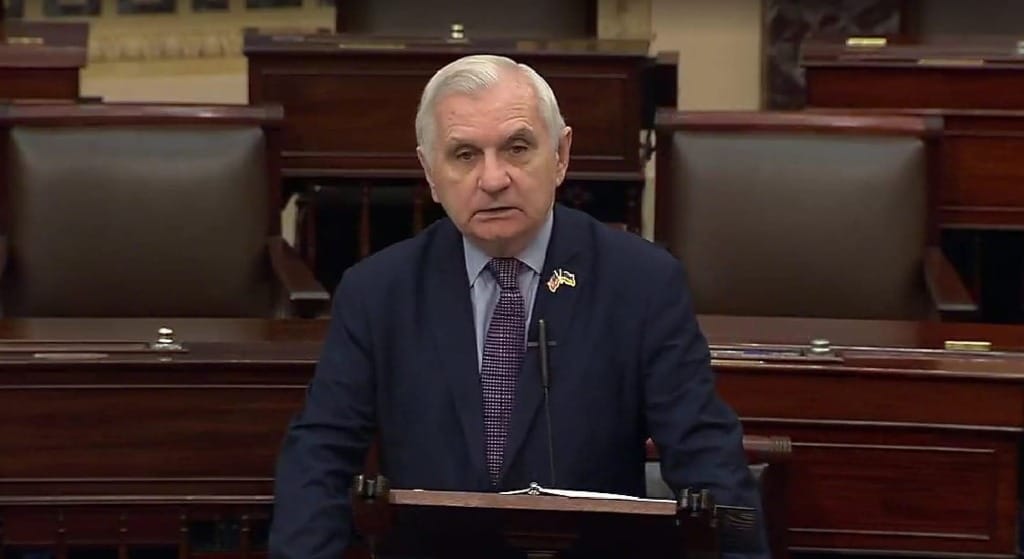Senate to Weigh Opposing Resolutions Targeting Trump and Biden Energy Policies
One seeks to overturn Trump's emergency energy declaration, the other targets Biden's methane gas fee.
Jericho Casper

WASHINGTON, Feb. 26, 2025 – The Senate was set to vote Wednesday on two divergent Congressional Review Act resolutions targeting energy policy – one targeting President Donald Trump’s emergency energy declaration and the other seeking to repeal a Biden-Harris administration methane fee on fossil fuel producers.
As officials on both sides of the aisle expressed concerns about energy constraints, lawmakers remained deeply divided on the best approach.
Democrat Sen. Mark Warner, of Virginia introduced the resolution aimed at terminating Trump’s national emergency on energy declared on Jan. 20, 2025. Issued under Executive Order 14156, the order directed federal agencies to expedite domestic energy development, accelerate infrastructure projects, and use emergency permitting provisions to bypass environmental regulations.
Sen. Jack Reed, D-R.I., took to the Senate floor ahead of the vote Wednesday, calling the emergency declaration a “sham.” Reed said that the U.S. was already producing record amounts of oil and gas and that Trump’s executive order was designed to benefit oil industry donors rather than lower energy prices or create jobs.
"The President wants to bypass laws, explore eminent domain to fast-track fossil fuel projects — not to lower prices, not to create jobs, but to benefit Big Oil donors," Reed said, referencing reports that Trump solicited $1 billion in campaign donations from oil executives.
Reed added that the president’s executive order could increase energy prices and threaten jobs rather than secure energy independence. “I look forward to voting in favor of [Sen. Warner’s] resolution [to overturn the EO] when it comes up later today.”
Hoeven’s resolution targets EPA methane fee
Meanwhile, Republican Sen. John Hoeven, of North Dakota, was leading a resolution backed by 24 Republican senators to overturn the Environmental Protection Agency’s methane emission charge, which was established under the Biden administration’s Inflation Reduction Act.
The rule, finalized in Nov. 2024, implements a fee on oil and gas facilities emitting over 25,000 metric tons of CO₂ methane annually. The fee started at $900 per metric ton in 2024 and was set to rise to $1,500 per ton by 2026.
Speaking ahead of Wednesday’s vote, Sen. John Barrasso, R-Wy., argued that Hoeven’s resolution would eliminate “about $7 billion in new natural gas taxes on energy producers” which he said would lower prices for American families.
“This Democrat tax penalizes oil and gas production in America, and in doing so, punishes American families,” Barrasso said.
"The Biden-Harris administration imposed countless policies like the Natural Gas Tax that drive up the cost of production and limit the ability to fully utilize our nation’s abundant energy resources," Hoeven said in a statement.
The measure, under the Congressional Review Act, allows Congress to nullify federal regulations through a simple majority vote in both chambers. Debate is limited to six hours, the resolution cannot be filibustered, and, if passed, it goes to the president’s desk for approval or veto.
This debate over energy policy comes as U.S. energy demands are being driven in part by the rapid expansion of AI data centers and other forms of digital infrastructure.









Member discussion